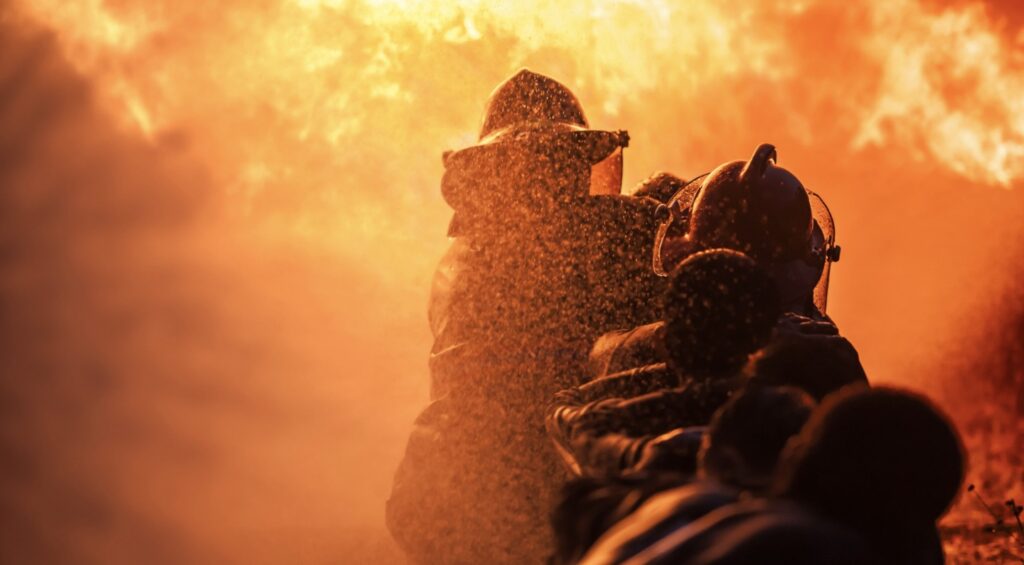Specialized Fire Protection Systems required for Industrial Building Hazards?
There are numerous types of industrial buildings and applications, all with unique products and fire hazard. While a few require very robust fire protection measures, while others require unique solutions for fire extinguishment. To name a few high-risk and/or sensitive industrial applications include following buildings:
- Data center
- IT/Telecommunications facilities
- Power plants
- Fuel oil storage facilities
- Energy storage systems (ESS)
- Museums and art galleries
- Manufacturing facilities
- Warehouses
This is by no means an exhaustive list of industrial buildings with unique fire hazards, but it does give a fair picture of the types of hazardous materials and high-risk operations involved that require robust fire protection system.
What Unique Fire Hazards Do Industrial Buildings Face?
The type of fire hazards that industrial buildings face is heavily dependent on each one’s specific application. Some industrial buildings are most concerned with protecting the products housed within them (e.g. data center protecting data servers from fire damage, but also water damage from water based fire extinguishing system). Others are most concerned with safely managing housed materials that are highly flammable or explosive in nature (e.g. energy storage systems with lithium-ion batteries).

Recommendations for provisioning Fire Protection in Industrial Buildings
What can you do to best protect your industrial building and occupants from fire risk? Although there are some unique steps you should take depending on your specific application, there are a few basic recommendations that all industrial facilities should be aware of:
- Design Your Fire Protection System compliant to NFPA Standards requirement
The National Fire Protection Association (NFPA) is an international non-profit organization that’s committed to reducing property damage, economic loss, injury, and death due to fire hazards. The association has established an extensive list of codes and standards that provide guidance on how to best prevent and respond to fire hazards in the workplace — and they even have a special set of standards and trainings for fire protection in industrial buildings.
By understanding NFPA standards and designing your fire protection system in compliance with them, your building and all those within it will be better protected against fires. If your team doesn’t have the time or resources to research and implement those standards, contact a local fire protection specialist to help you with systems design in accordance with NFPA standards. - Understand Clean Agents & Which May Be Best for Your Application
Some specialized industrial fires can’t always be extinguished with basic, water-based fire suppression systems. Instead, they require a different approach: clean agents. A clean agent is any type of fire extinguishing agent that’s electrically non-conductive, volatile, or gaseous, and that doesn’t leave a residue upon evaporation.
There are a number of clean agents based fire extinguishing systems available, but depending on your application, you may find that one would be more suitable for your facility than the others. Some of the most common clean agent based systems include:
・FM-200 – A non-toxic, colorless gas that uses heat absorption to extinguish fires and leaves no residue.
・INERGEN – A combination of three inert gasses (nitrogen, argon, carbon dioxide) to lower the oxygen content in a room below the level that supports combustion, while still allowing people to breathe.
・Novec 1230 – Another non-toxic, colorless agent that extinguishes fires without leaving residue and disrupting high-value assets.
・Water mist: Water mist consists of very small water droplets. The superior fire suppression capability of water mist is based on evaporation: when tiny water mist droplets turn into vapor, a great amount of energy is absorbed from the fire.
The main consideration here is to explore which clean agent system is best suited to protect your facility, the materials that are stored there, and the people who work there. - Regular Inspection, Testing & Maintenance of Fire Protection Systems
No fire protection system is complete without a plan for regular & periodic inspections, testing, and maintenance. So once you’ve invested in the fire protection systems and technologies you need to keep your assets safe, you must also commit to put in place inspection testing & maintenance plan to keep them functioning well.
NFPA provides various standards related to inspection, testing, and maintenance protocols. You’ll find that some system components need to be inspected or tested every day, while others may only need to be tested every 5 years.
There are many components (hydrants, fire sprinklers, fire detection & alarms, etc.) that require different levels of attention — and while you can definitely manage that on your own, you may find it easier to contact a professional that can help keep track of and carry out those inspection, testing, and maintenance tasks for you. - Train Employees on Effective Fire Prevention & Response
It’s not enough for just one person to know the fire hazards in your industrial workplace; your whole team must also be aware of them. Fire safety training aims to educate your employees of those hazards and how to best prevent them. Have a fire prevention expert visit your facility one or two times a year to make sure best prevention practices are consistently communicated to all employees.
And while it’s important to do your best to prevent fire emergencies in the first place, it’s also critical that your employees know how to respond in case a fire does happen. Things like hands-on fire extinguisher training and a thorough evacuation plan should all be implemented to prepare your team for a calm, safe, and efficient response.
Industrial buildings can pose special fire risks, which means they usually require specialized fire protection systems. If you’re concerned that your facility isn’t outfitted with the adequate fire protection systems it needs to keep your property, products, and people safe, contact our experts at Nohmi Bosai. We’ll listen to your needs, then design & provision fire system solution that will best protect your assets in unforeseen emergencies.